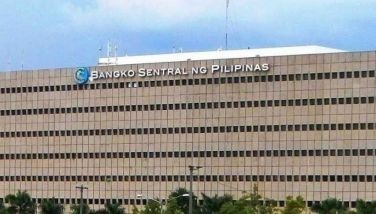Visa sees opportunities in large transaction volumes in Asia

MANILA, Philippines — Visa Inc. sees more growth opportunities in Asia Pacific amid the large volume of cash transactions in the region.
“Countries in the region with big populations presents an opportunity to grow the electronic payment network. These are also the markets that will adopt mobile technology and potentially leapfrog over the rest of the region,” Chris Clark, Visa regional president for Asia Pacific, said in his keynote at the recent Visa Asia Pacific Security Summit in Singapore.
Clark said 55 percent of the $11 trillion payment volumes in Asia Pacific are done in cash.
In the Philippines, 80 percent of all transactions are still cash, based on data from the Euromonitor Report in 2017.
“This means there’s a lot to be converted to electronic payments,“ Clark said.
Clark said universal connectivity, particularly through the use of smartphones would lead the way towards a more digital and cashless payment network.
Data from the World Bank in 2017 showed more than two thirds or 1.3 billion of the 1.9 billion internet users in Asia Pacific access the internet via their smartphones.
However, with the movement towards a more digital and cashless payment system also comes the need to improve payment security.
“Payment security and convenience were once considered opposing forces. Not anymore,” Visa Asia Pacific head for risk Joe Cunningham said. “We have reached a point where security is embedded in the process. It doesn’t come at the cost of convenience but rather, it enables innovation.”
Cunningham added Visa is committed to ensuring its network operates at the highest level of security, as it continues to adopt strong technologies based on industry standards such as the EMV chip, tokenization and point-to-point encryption.
Visa vice chairman and chief risk officer Ellen Richey said hypercriminality has risen with today’s increasing hyperconnectivity and hyperconvenience.
“There’s a direct connection between the complexity of connectivity and the convenience that we are seeing and the ability of the criminals to exploit it,” Richey said.
To address this, Richey said Visa is implementing its four pillars of payment security: protecting data, devaluing data, harnessing data and empowering customers.
“I’m impressed by the work the team has done to disrupt the disruptors, to start fighting back against criminals who have such organized ways of attacking us,” Richey said.
Richey also highlighted the importance of tokenization in the security of payments networks.
Tokenization in digital commerce replaces sensitive data with a unique identified, which discourages data compromises. This will then allow the expansion of payment beyond plastic cards to wearables and other devices.
With the growing number of ways to pay and be paid, she said this also means more vulnerable data could be stolen, which is why it is important to devalue data through tokenization.
“If it’s stolen, it can’t be used to commit fraud. it’s critical. tokenization of data,“ Richey said.
- Latest
- Trending



























